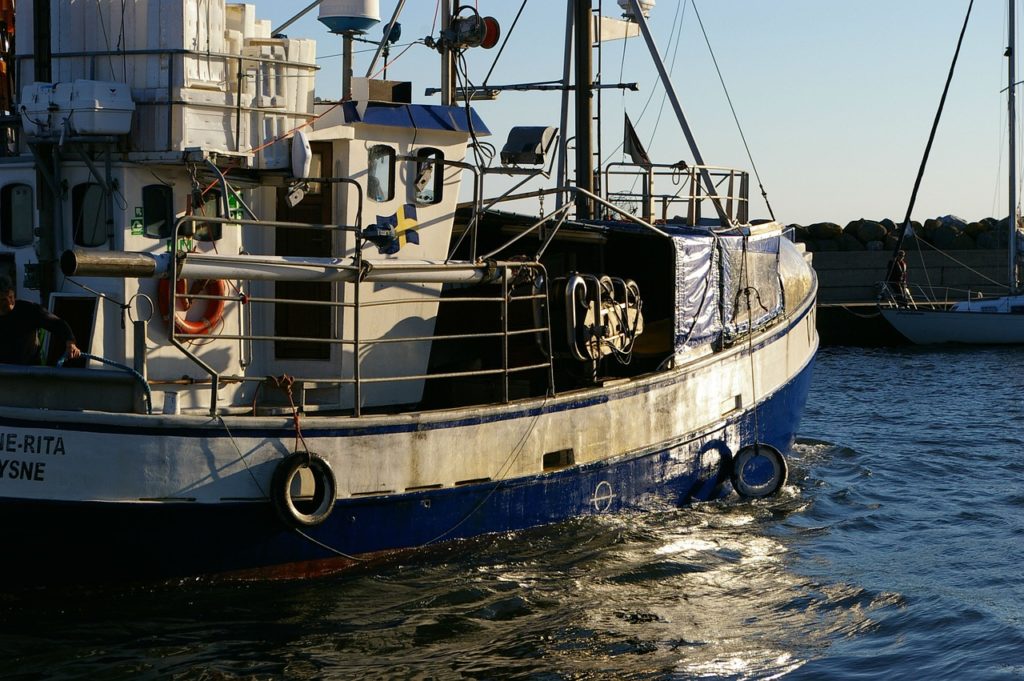If you have an adventuring spirit, then why not consider a career in Maritime, Fisheries and Aquaculture? This is a profession with a history and pride that is both intriguing and legendary.
Catching fish is not solely a way of earning livelihood – it is a way of life. These careers can take the route of either fishing from a vessel or fish farming. Fishermen and women work on boats ranging from single-handed vessels (which are unusual these days) to floating factories. Fish farmers use modern methods and technologies to breed and harvest many different kinds of fish and shellfish.
A fishing career is by no means plain sailing – there is plenty of hard, physical work involved. There are also inherent dangers in the industry because of the unpredictability of the sea. Fishing is also almost totally reliant on weather conditions. In addition, fish quota restrictions have adversely affected industry workers and employers.
Despite these shortcomings, fishing is a good career choice in many respects. The Irish Government and the EU have continually expressed their commitment to the industry, with schemes to promote conditions and equipment on fishing vessels and in shore-based facilities.
Maritime, Fisheries and Aquaculture Education
Bord Iascaigh Mhara (BIM) runs the training courses for fishing careers. BIM is the state agency for the development of the fishing industry. Their courses take place in the National Fisheries College in Greencastle, Co. Donegal or in the Regional Fisheries Centre in Castletownbere, Co. Cork.
As the BIM courses are not part of the CAO system, there are no points required. BIM interviews prospective students. Applicants will have usually passed their Leaving Cert. Students must show enthusiasm for the job, and work experience in fishing or aquaculture will improve your chances considerably.
The Commercial Fishing QQI Award course lasts for six months. This and gives students comprehensive training in subjects such as:
- Practical skills in engineering
- Fishing vessel operations
- Care of the catch
- Net repair and construction
- Navigation
- Safety
People interested in fish-related careers can also apply for Marine Biology and Marine Science courses through the CAO system.
Options After Qualification
BIM certificates are usually the minimum requirements for entry into the fishing industry. It is then your responsibility to increase your knowledge and skills as your career develops. You can do this by taking further BIM courses and gaining practical experience.
Fishermen and women generally start work as deckhands on fishing vessels after qualification. They receive more responsibility as they gain knowledge and experience. It is also usual for people to work their way up in a fish-farming career. Many of those involved in fishing and aquaculture have the ultimate ambition of running their own business – usually a boat or a fish farm.
The Work
Typical duties include loading and repairing fishing nets, catching, sorting and gutting fish, and keeping the boat and machinery clean and in good working order. Bigger fishing vessels often have specialised and high-tech equipment too.
Skippers lead the fishing vessel crew. They are responsible for planning voyages, navigation, the operation and maintenance of equipment, the size and landing of the catch, and the safety and management of the vessel and crew. They must also be familiar with international regulations. Finally, skippers try to ensure that each fishing trip makes a profit.
Fish Farming
Aquaculture and fish farming is a scientific business, which makes use of advanced technology. Farmers keep fish in large pens or cages in the sea, or in specially built or adapted ponds, cages or tanks. Duties include feeding fish by hand, monitoring the health of the fish, maintaining water quality and conditions, harvesting the fish, and marketing and selling the final products. Farm managers duties include supervising workers, upgrading equipment and facilities, and meeting environmental standards. They may also work in research and tourism.
Personal Qualities and Work Environment
Fishing is a traditional and well-respected profession. It means facing daily challenges, physically as well as mentally. People with an affinity for the sea and nature can get real satisfaction from the challenges of a fishing career. It suits people who are physically fit, like working in a team, and don’t mind getting wet!
It is important to bear in mind that it is an option that’s suited to a specific type of person. Those with a propensity for homesickness would not last long. Modern fishing boats can have comfortable living quarters, but conditions vary from vessel to vessel.
Fish farming takes place a lot closer to dry land. However, the work can be similarly hard and time-consuming, and fish farms are usually based in remote locations.
The Jargon
Backwaters: a shallow-water area off a river
CFP: The Common Fisheries Policy is the fisheries policy of the European Union
Aquaculture: Another name for fish farming, which means the cultivation of the natural produce of water (such as fish, shellfish, algae and other aquatic plants)
Quota: The amount of fish that a vessel can legally catch within a certain time limit. Quotas ensure a certain number of fish remain in the sea to breed and protect fish stocks












Comments